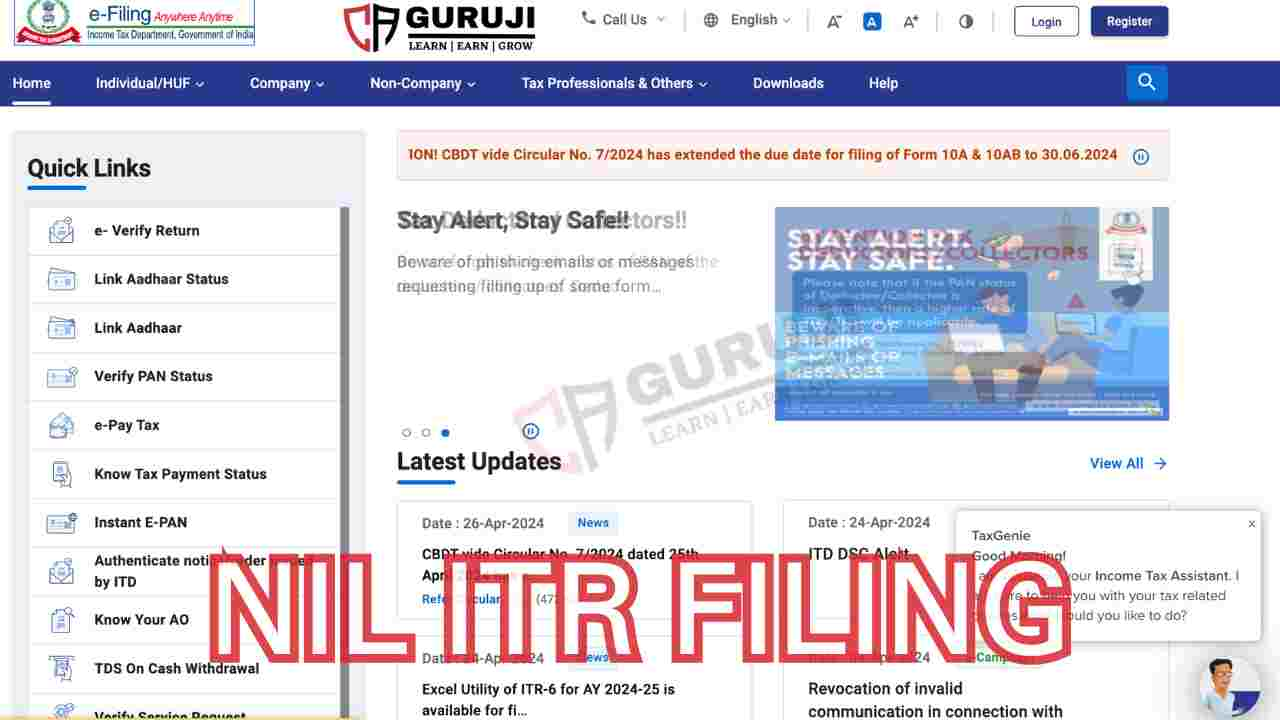A Nil Return is filed by individuals whose income falls below the basic exemption limit, meaning their tax liability is zero. Even though such individuals are not required to file an income tax return as per Section 139(1) of the Income-tax Act, 1961, filing a Nil Return can be beneficial.
Basic Exemption Limits
Depending on the tax regime, the basic exemption limits are as follows:
Old Tax Regime:
- Below 60 years: Rs 2,50,000
- Between 60-80 years: Rs 3,00,000
- Above 80 years: Rs 5,00,000
New Tax Regime:
- Basic exemption limit: Rs 3,00,000
What is a Nil Return?
A Nil Return is an Income Tax Return (ITR) filed to inform the Income Tax Department that your income is below the taxable limit and thus, no taxes were paid during the financial year. Filing a Nil Return is not mandatory but is done voluntarily for various benefits.
When Should I File a Nil Return?
- Proof of Income:
- To maintain a record of income, especially useful for visa applications or passport issuance.
- To continue a filing history if you have previously been filing ITRs but fall below the taxable limit in the current year.
- Claiming Refunds:
- If your total income is above the taxable limit before deductions but below after deductions, you need to file an ITR to claim any TDS refund.
Can I Go Without Filing a Nil Return?
While it is not mandatory to file a Nil Return if your income is below the basic exemption limit, doing so can provide the aforementioned benefits.
File yourself by watching this video:
Benefits of Filing Nil Returns
- Required for visa applications.
- Accepted as proof for passport applications.
- Necessary for loan applications.
- Allows claiming of TDS refunds.
- Mandatory for individuals with foreign assets.
- Enables carry forward of stock market losses.
- Mandatory if specific financial criteria are met (e.g., high bank deposits, foreign travel expenses, high electricity consumption).
Due Date to File Nil Income Tax Return
Nil Returns must be filed before 31st July of the Assessment Year. Filing after the due date results in a belated return, which does not incur late fees for Nil Returns.











